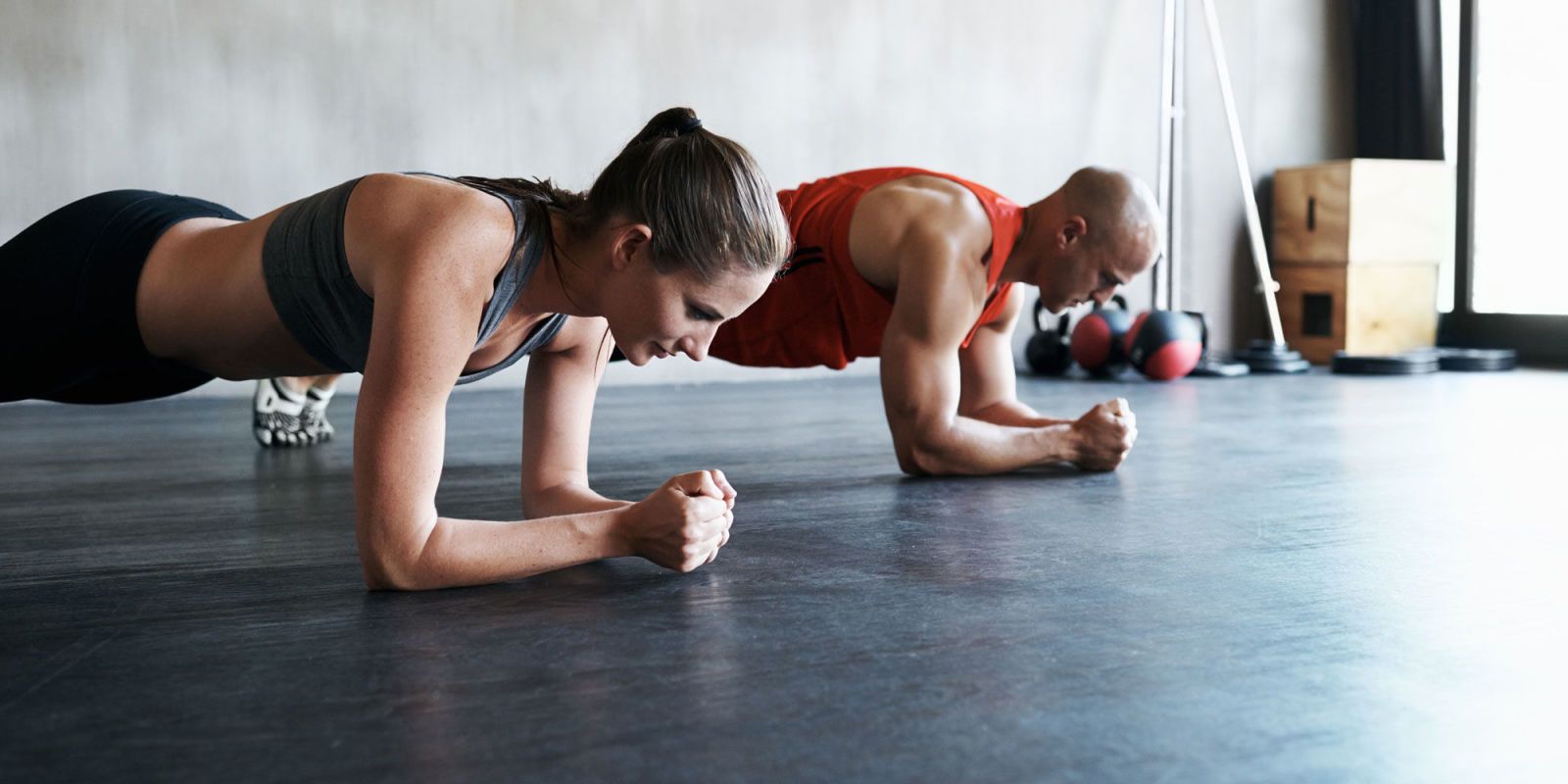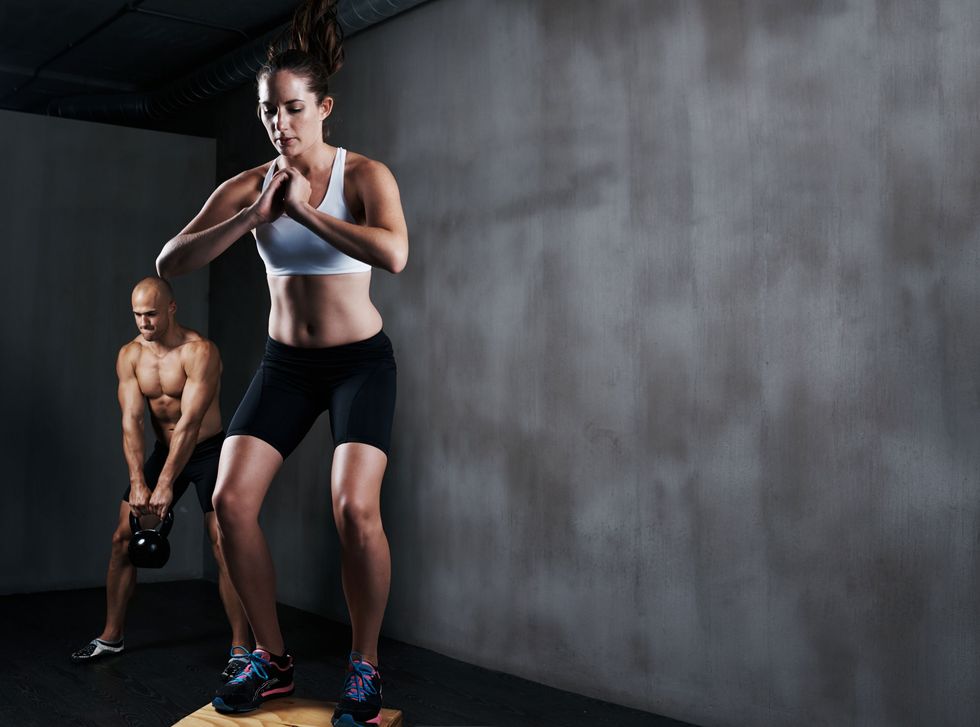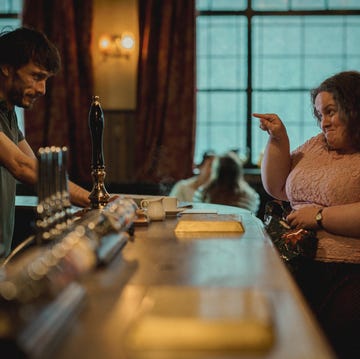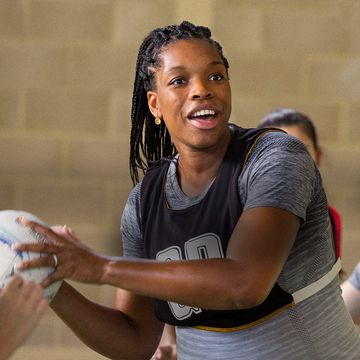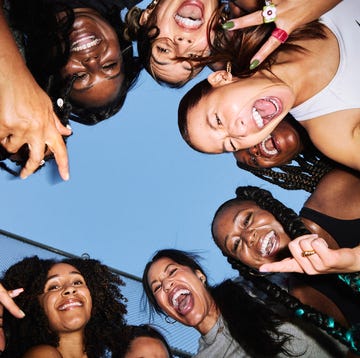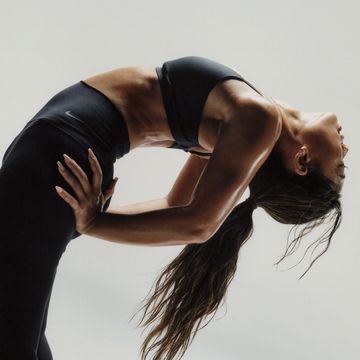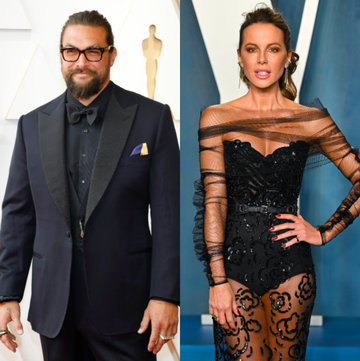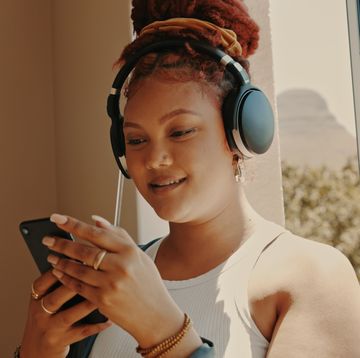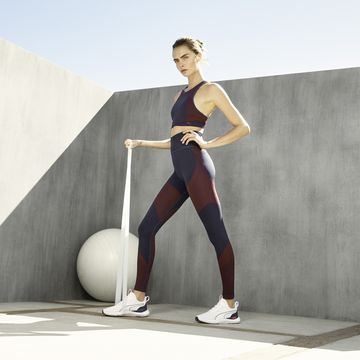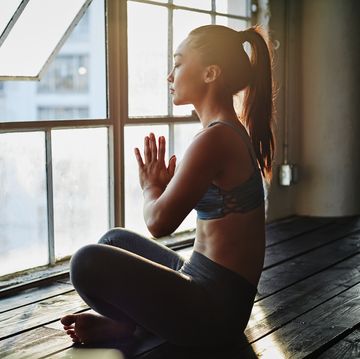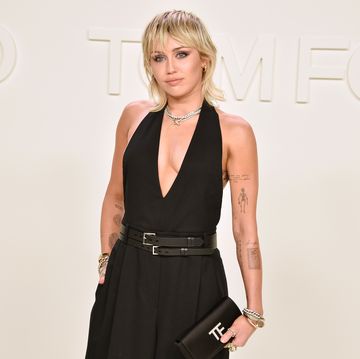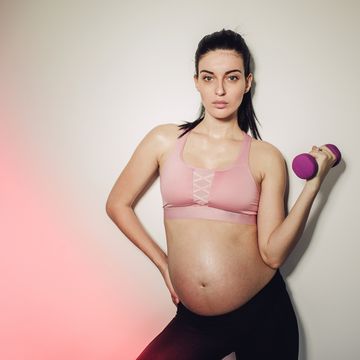I am breathing in air 3,000m above sea level.
Breathing is the wrong word, more like gasping as I stumble from completing 800ft on the Versa Climber (think of a crossfit machine but more vertical) to attempt a 1.5km cycle, before moving on to a 50m Skill Mill Sled Push (like being a hooker in a rugby scrum, with the weight set to maximum, because why not?) and finishing off with a 1km run at a 2% incline.
I'm not even in a beautiful mountainous setting, breathing in alpine air, to take my mind off the intense burst of exercise I've just put my body through.
I'm in the sweaty, low-lit Hypoxic Chamber at Third Space gym in Soho, having signed up to do the Elevation 2.0 challenge, known as 'the world's toughest altitude challenge…for those prepared to push their body to the limit'. It's one of the hardest, most intense fitness challenges I've done for a while, but afterwards I feel good. Shaky, but good.
The Elevation 2.0 challenge is the sort of feat that you'd expect more men than women to sign up to: it relies on strength, getting very sweaty, and endurance.
The sled push machine in particular is designed for broad shouldered men, and is, in my opinion, the hardest of the torturous equipment.
This is the second year Third Space has run the challenge, which ends on 30 September and is open to both members of the gym and non-members (who must be nominated by a member that has completed the challenge).
But this year there's a vast difference in the people taking part. It's not just men looking to complete the challenge in a record time and get a place on the leaderboard, but women gym goers are just as keen (and strong).
When I spoke to Lauren Wilson, Head of Marketing at Third Space, she said there'd already been a clear increase in the number of women stepping up to the challenge.
'At this point last year we had only a handful of women take part in the challenge – roughly about 5 out of the back-to-back appointments from the 2 launch days. Altogether 2017 has seen a 50:50 gender spilt, which is great to see. Last year in total it was closer to 70:30 men to women.'
ELLE's Digital News Editor, Katie O'Malley, was one of the women who signed up this year: 'It was absolute hell, but as it's a timed challenge it became quite addictive to try to beat the winning time/compete against yourself. I went in after a guy who pretty much did it in the same time as us which was quite a good confidence boost as, given the way it was set up with the equipment, it wasn't so much to do with strength and weights, rather endurance.'
The Elevation 2.0 at Third Space is a (very sweaty) microcosm of what's happening on a wider level in the fitness world.
It represents the shift towards greater gender equality and balance, not only in the type of training women are doing (less bums and tums, more boxing), but also the reasons for working out, their approach, and how gyms are responding to this.
Third Space trainer Alice Living, who peaked at 2nd position on the leaderboard for the Elevation Challenge, says that the fitness industry as a whole has become more gender equal: 'There are far more women embracing weight training as a way of strengthening their bodies and creating a strong physique. In my own experience, I have been pleasantly surprised by how many clients I now see who are women who want to strength train.'
It's not just the fact that women are doing more weight training that's signalling a shift. There's a growing awareness around the importance of a balanced workout, not only hammering your body with lunchtime HIIT classes, but complementing intense sessions with yoga and Pilates.
'We know now more than ever that balance is key - so splitting your workouts between cardio, strength and yoga is essential, no matter what your gender,' says Rhian Stephenson, the founder of Psycle which has just opened its latest studio in Shoreditch, and offers yoga, Pilates and barre alongside its HIIT and cycle classes. 'My classes are almost even split between men and women, whereas when we launched in 2014 they were 90% female.'
Some would argue that the rise of boutique gyms (think white velvety towels, designer shampoo and face wipes) is aimed at, and appeals more to, women. But Rhian is quick to point out that men love it too.
'A lot of them are apprehensive at first and think of it as a soft, easy spin class, but when they see how hard we train they are instantly converted. I thought more men would ask for whey protein, but the amount of men who have been excited that we use plant based [protein] is really refreshing. We've also been surprised at the amount of men who take our barre class. We made it more modern by ditching the balletic language and postures so you can just focus on its incredible benefits, which men seem to like.'
There are also more male barre and yoga instructors than there were before, and a 'far more balanced split of talented instructors across disciplines,' according to Rhian, who oversees a barre class to cross train footballers.
Over at F45 Training, where sessions combine elements of High-Intensity Interval Training (HIIT), Circuit Training, and Functional Training, all classes (which last 45 minutes) have both a female and a male instructor.
According to the CEO Rob Deutsch there is also a visible difference when there is a more mixed class: 'There is a great vibe…you see the women focused on increasing their weights, while the men are constantly pushing their aerobic ability. There is a shared interest of fitness and you also see the women and men challenging each other, which is great!'
However, according to some psychologists, there are nuanced differences in the way men and women approach workouts.
Dr. Rhonda Cohen, a Sport and Exercise Psychologist at Middlesex University and author of Sport Psychology: Optimising Performance, explains her view of the psychological difference: 'Women approach fitness workouts from a perspective of satisfaction with appearance. While men approach it more as a sense of achievement. In a gender/evolutionary way, the stronger the male the higher he would be "ranked" or dominant.'
But as the number of women in high level sports increases, and thanks to more media coverage, especially with the England Women's Football team making it to the semi-finals of the Women's Euro 2017 and the England Women's Cricket Team winning the World Cup this summer, as well as Women's Rugby getting a slot on primetime TV for the World Cup Final against New Zealand, more women are attracted to sport and fitness challenges.
In an Olympic first for Australia (where sport and physical fitness is a central part of the lifestyle), more women competed in the national team that competed at Rio 2016 than men, according to a study by Women on Boards.
Dr. Rhonda Cohen: 'As a result of more TV coverage, we can see women in tennis at Wimbledon earning as much as men. Olympic Gold Medal boxing champion Nicola Adams enjoying being powerful and strategic in a contact sport. Then there are also challenge sports such as ultra marathons or tough mudder which are attracting more and more women competitors.'
Greater gender equality in gyms also has a positive effect on body image. 'The benefits of classes and gyms being more gender equal is it just gets people used to different bodies,' says Bangs and a Bun, former ELLE Fitness Editor and head instructor at Boom Cycle.
'It levels the playing field somewhat. When you're in a mixed class, you can see that men struggle with certain things, woman struggle with others and it just helps to break down those barriers and preconceived ideas we all have, be it that men are stronger or women are more flexible. I've been in yoga classes where I envied the flexibility of the men there and I've been in gyms and witnessed a woman deadlift twice their own bodyweight.'
Bangs is also confident that whatever's happening on the gym scene is a positive step in the right direction towards greater equality outside of the fitness world.
'In a mixed gym environment, much like in society in general, we have to have the confidence to stand within it. The more men see us being sweaty, messy, focused, confident, competitive, strong and a string of other adjectives that fitness brings out in us, the more the pendulum swings, ever so slightly, bit by bit, towards equality.'
So, anyone up for the Elevation Challenge? It's not that bad, I promise.

